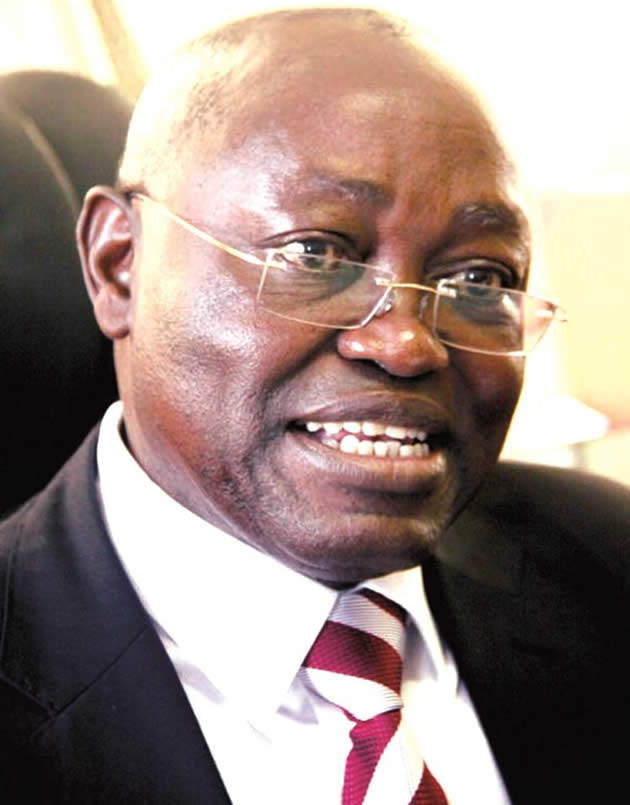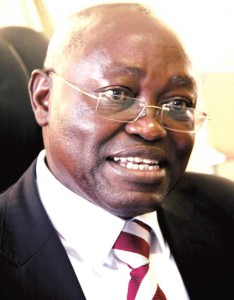
The Sunday Mail

In-Depth reporter
Zimbabwean legal practitioners are milking unsuspecting clients through a sophisticated cocktail of deceitful methods. Players in the justice system, most notably lawyers, magistrates and prosecutors, have been accused of a litany of underhand dealings, among them abuse of clients’ trust funds, gross overcharging, forging of documents and signatures.
Investigations carried out by The Sunday Mail revealed that the abuse of clients’ trust funds is the most prevalent form of unprofessional conduct by local lawyers.
According to the Zimbabwe Republic Police, there are many cases in which lawyers are being incriminated on charges of abuse of trust funds.
A number of lawyers turned fugitive are on the run, wanted by police in connection with various profession-related frauds. Detective Assistant Inspector Fidelis Mazividza of the Criminal Investigation Department (CID) said legal practitioners are finding it difficult to manage trust funds.
“Most victims who fell prey to the fraudsters include property buyers and families that entrust funds and properties of the estates in the hands of lawyers. Managing trust accounts is proving to be a task riddled with temptation for many lawyers,” Det Asst Insp Mazividza said.
According to Det Asst Inspector Mazividza, the lawyers’ initial intention will be to use the funds to generate profit and then return the initial amount before it is requested by the fund owners. The lawyers then run into trouble after the investment flops. He urged people to engage reputable law firms that have a proven record of good service, especially when large sums of money are involved.
Lawyers are also fleecing clients by fraudulently selling bonded properties. The lawyers, acting in connivance with unscrupulous estate agents and fraudsters, are selling properties which are bonded, when bonded properties cannot be sold to another person until the bond is fully paid. It is the duty of the legal practitioner engaged to ascertain that the property in question is free from any bond before commencing any sale.
The ethics that govern the conduct of legal practitioners clearly state that it is the mandate of a legal practitioner to disclose, without causing prejudice or favour, to the buying party that the property in question cannot be sold until the bond is fully paid.
It is criminal for a legal practitioner to receive money for a bonded property. Instead of disclosing such prejudicial information to the buyer, some lawyers are selling properties using fictitious title deeds. Funds are then fraudulently transferred from the buyer to the seller.
“It is my advice that due diligence has no substitute. All property buyers should try by all means to ascertain the status of the property before releasing funds,” added Det Asst Insp Mazividza.
The property sector has been hit by such fraudulent syndicates and buyers are advised to be diligent. In other cases, clients who would have surrendered cash to some lawyers to buy properties have had their money misappropriated.
Last year Mr Tichaona Mawere, a lawyer, was de-registered from the Law Society of Zimbabwe (LSZ) roll after he was found guilty of professional misconduct. The lawyer sold a non-existent residential stand to businessman Mr Major Murombedzi. He purported to be selling stand 4A Monavale when no such property existed.
In another case, a Bulawayo-based lawyer, Mr Masimba Munjanja, was in 2011 suspended and investigated for allegedly failing to facilitate the transfer of a property despite receiving conveyance fees from a client.
Mr Munjanja was also accused of failing to professionally represent his clients, resulting in the clients losing their cases. There has been a public outcry over the proliferation of bogus lawyers who are fleecing litigants by charging exorbitant fees while offering poor services.
Some of the lawyers that were de-registered by the society for unprofessional conduct are unlawfully offering legal services. When a legal practitioner is de-registered or suspended, such lawyer can no longer perform any duties of a lawyer.
These suspended lawyers prepare legal documents in law firms without appearing in courts.
Various law firms employ some of the de-registered lawyers disguising them as clerks while in actual fact they will be performing duties of a lawyer. Investigations revealed that there are also individuals who are masquerading as registered lawyers when they are not trained. Dubious lawyers can be seen milling around the courts across the country. By law, persons without practitioners’ licences are not allowed to render any legal services. They are barred from appearing in court, at prisons or police stations.
Corruption is rife within the justice system with key players such as magistrates and state prosecutors poorly paid. Junior, regional and provincial magistrates earn US$400, US$500 and US$800 respectively.
In 2011, former Kwekwe prosecutor Vincent Chikombe was given a two-year jail term for criminal abuse of office. He prosecuted in a theft case involving Seward Chigwedere who faced charges of swindling the Kwekwe City Council of US$3 900.
Chikombe allegedly advised Chigwedere to pay him US$500 and a further US$300 so that he would not go to jail. The two agreed that Chikombe would also press for him to be granted bail pending trial.
Chigwedere was, however, found guilty of the theft charge, prompting him to report Chikombe to the police.
Bogus lawyers are now so prevalent that the High Court in Harare is littered with notices warning the public against dealing with bogus lawyers.
Early this year, the Law Society of Zimbabwe published a warning that they would publish names of those practising without licences in the media.
Some of the local legal practitioners are also fleecing clients through overcharging. As a result, some of the lawyers have appeared before the Legal Practitioners’ Disciplinary Tribunal to answer charges of unprofessional conduct.
According to the tariffs agreed upon and published by the LSZ in 2009, property owners who approach lawyers for a sale agreement must be charged between US$720 and US$100 or 2 percent of the selling price. For an uncontested divorce with or without a consent paper, the minimum negotiations including appearance in court, the plaintiff will fork out between US$2 417 and US$3 625 with the defendant paying between US$ 1 333 and US$2 000.
Having a simple will drafted costs between US$750 and US$1 125 while a general Power of Attorney costs between US$180 and US$270. Lawyers who have been in practice for 20 years and above are allowed to charge between US$354 and US$531 per hour while those who have been in practice for less than a year charge between US$130 and US$195.
Enquiries made by The Sunday Mail revealed that consultation fees vary from as little as US$20 to as much US$1 000. Most small legal firms charge between US$20 and US$400 consultation fees. Bogus lawyers charge very little while top lawyers like Jonathan Samkange, of Samkange and Venturas, charge a consultation fee of us$1 000 and different cases attract different hourly rates.
In South Africa most senior advocates are charging between R45 000 to R60 000 a day.
The legal team representing Olympian Oscar Pretorious, who is facing murder charges following the fatal shooting of his girlfriend Reeva Steenkamp, is reportedly getting R100 000 a day.
The legal team is made up of advocate Barry Roux, junior advocates Kenny Oldwage and Webber Wentzel, who are all regarded as among that country’s best legal brains. To arrive at the R100 000 mark, the reports based its calculations on Roux’s daily rate of R35 000, Oldwage’s R24 000 a day and Webber’s costs of R20 000 a day.
Since most Zimbabweans cannot afford legal fees, some lawyers have taken advantage of that fact to start bogus legal aid groups.
After making monthly contributions, some of the litigants find themselves without legal representation when the need arises.
“I was conned of my hard-earned cash by a bogus lawyer. I contributed more than US$800 but when I approached the lawyer for services, he became evasive,” said Nyasha Chanakira, a victim.




